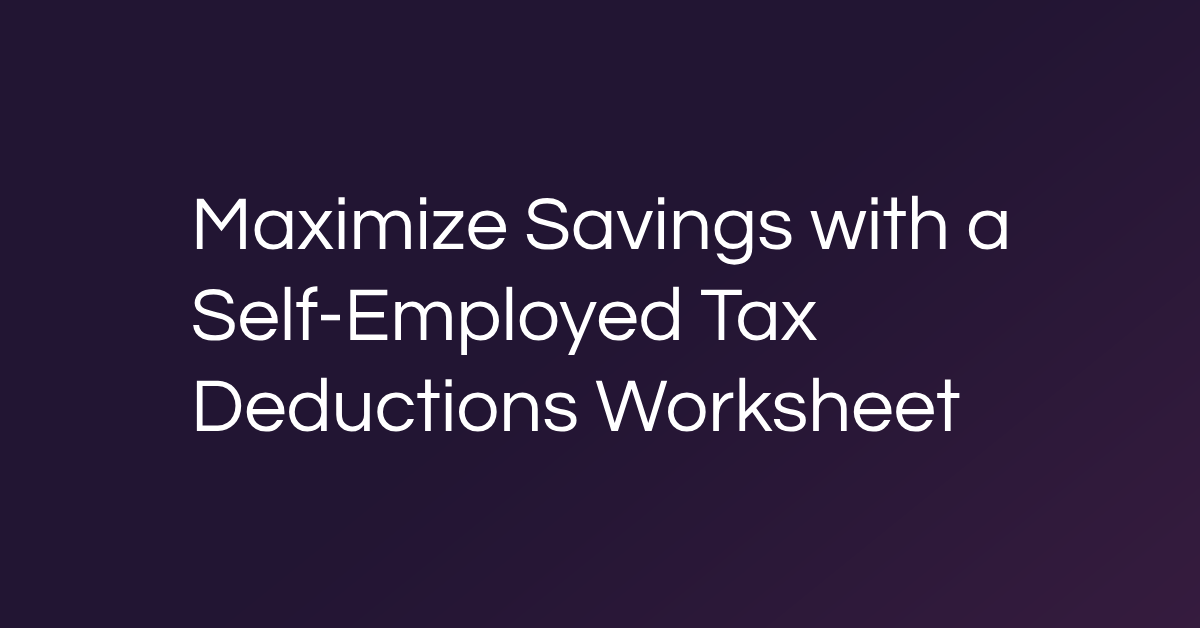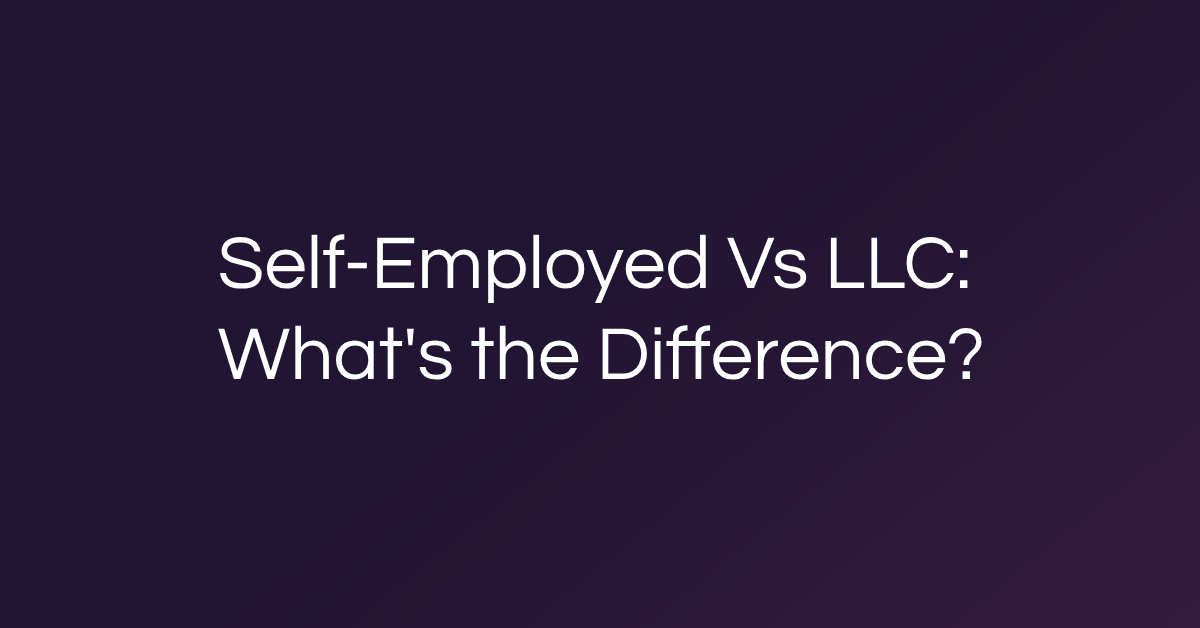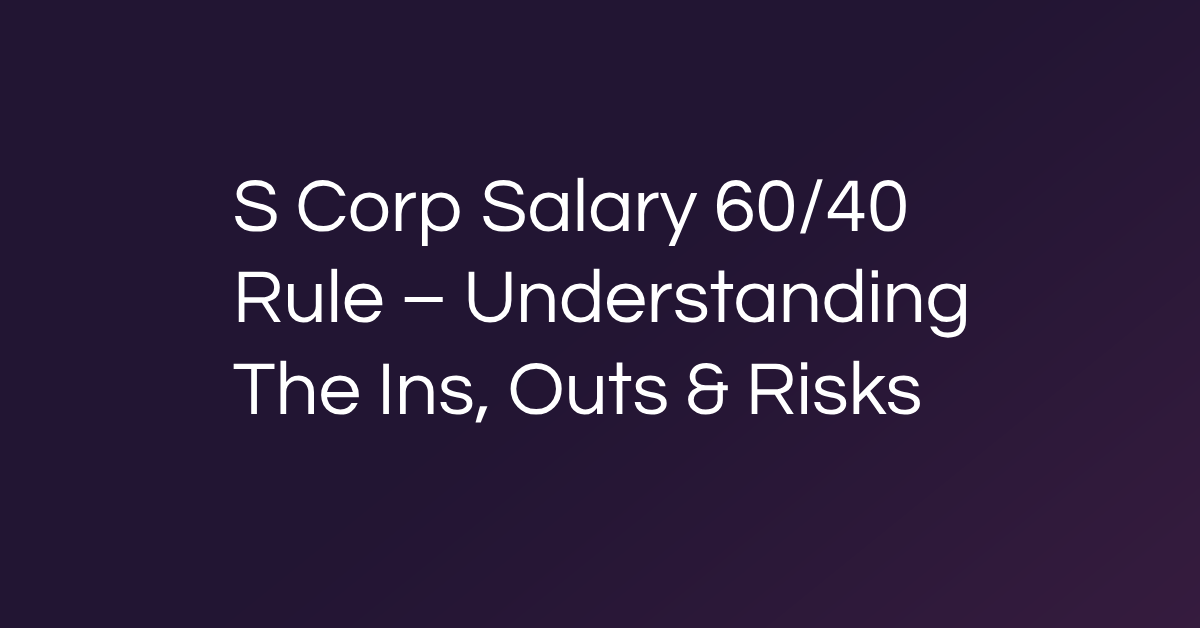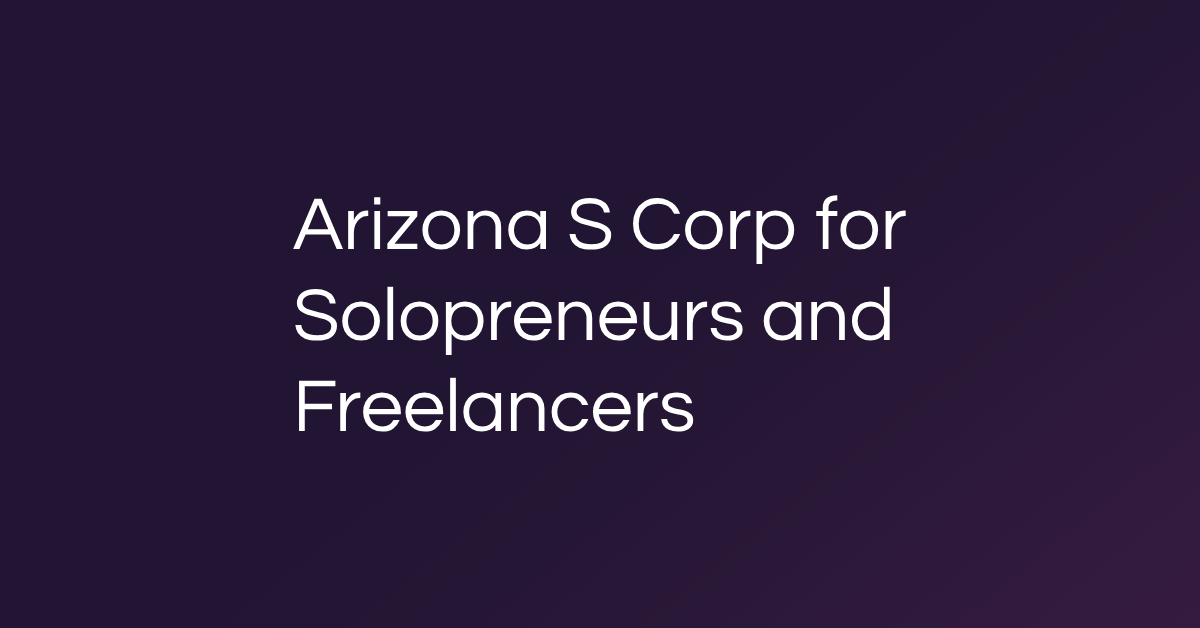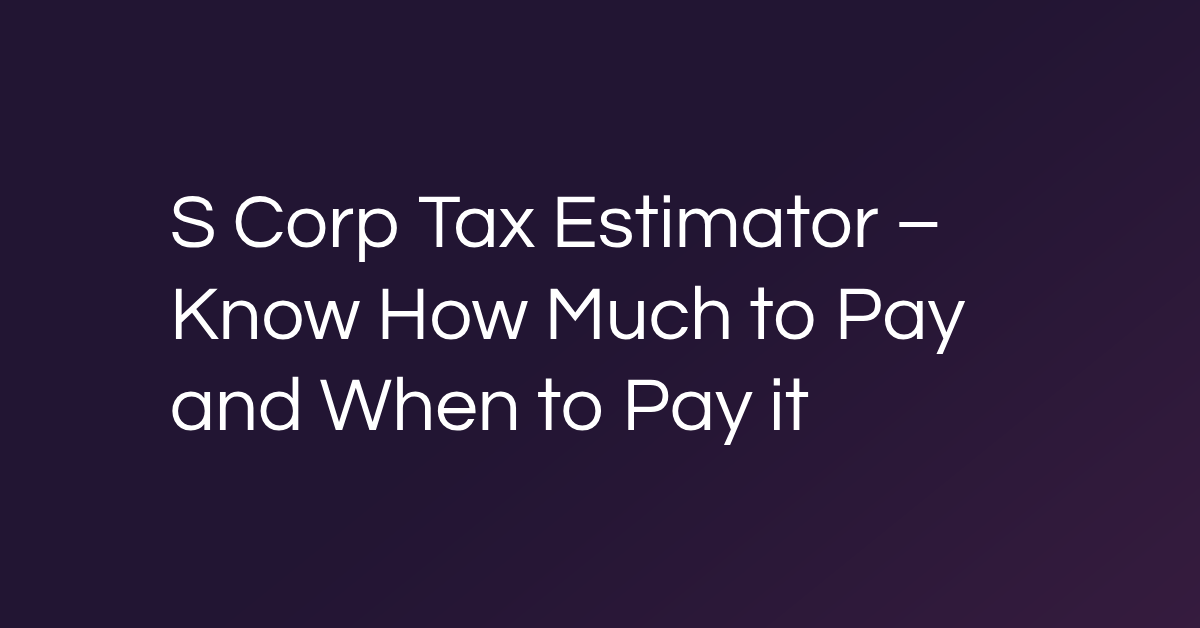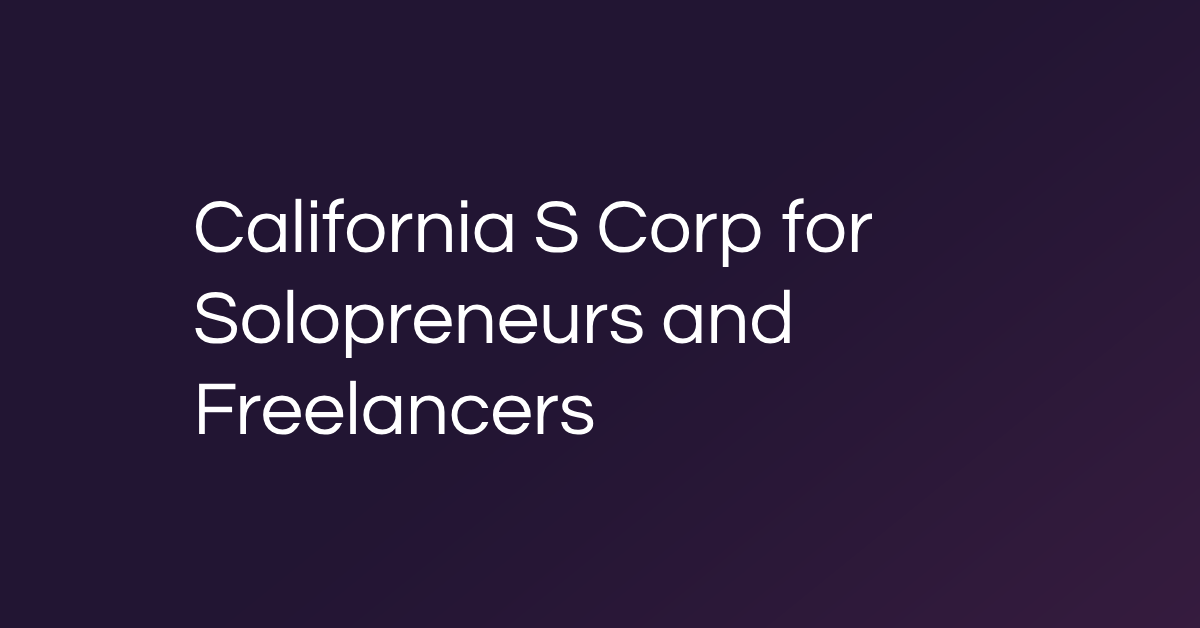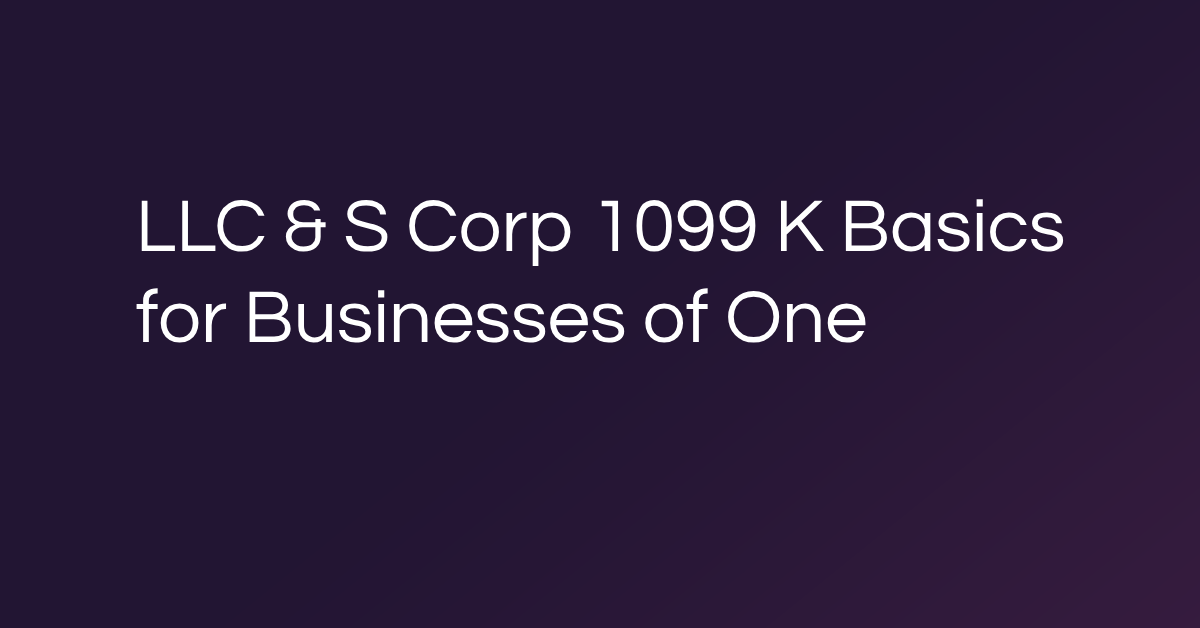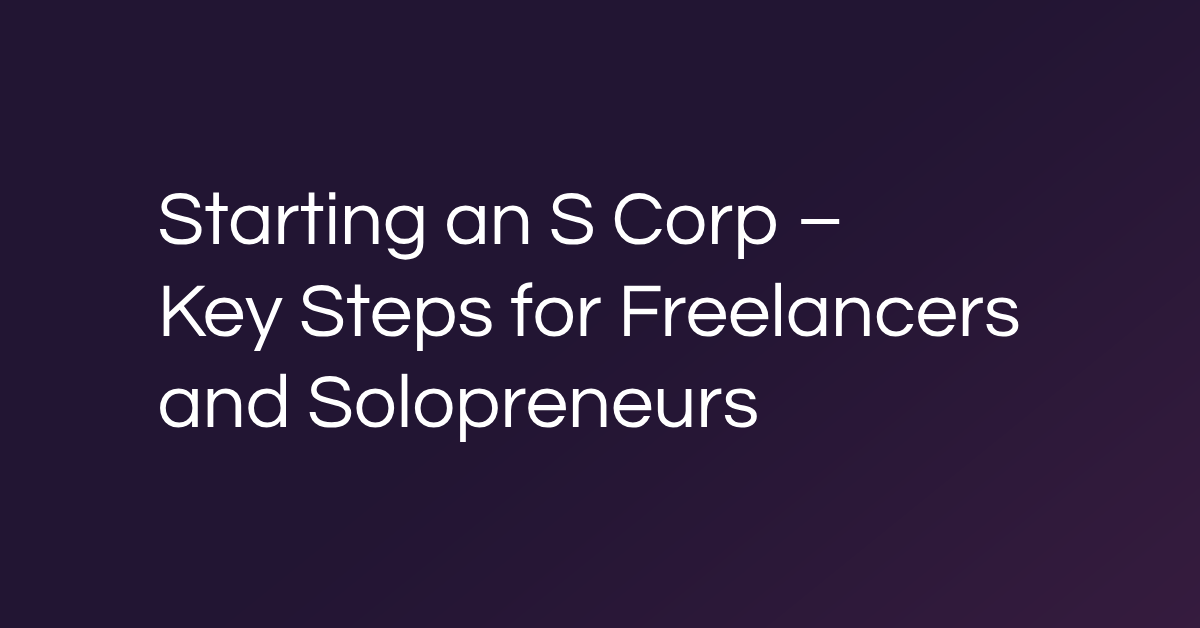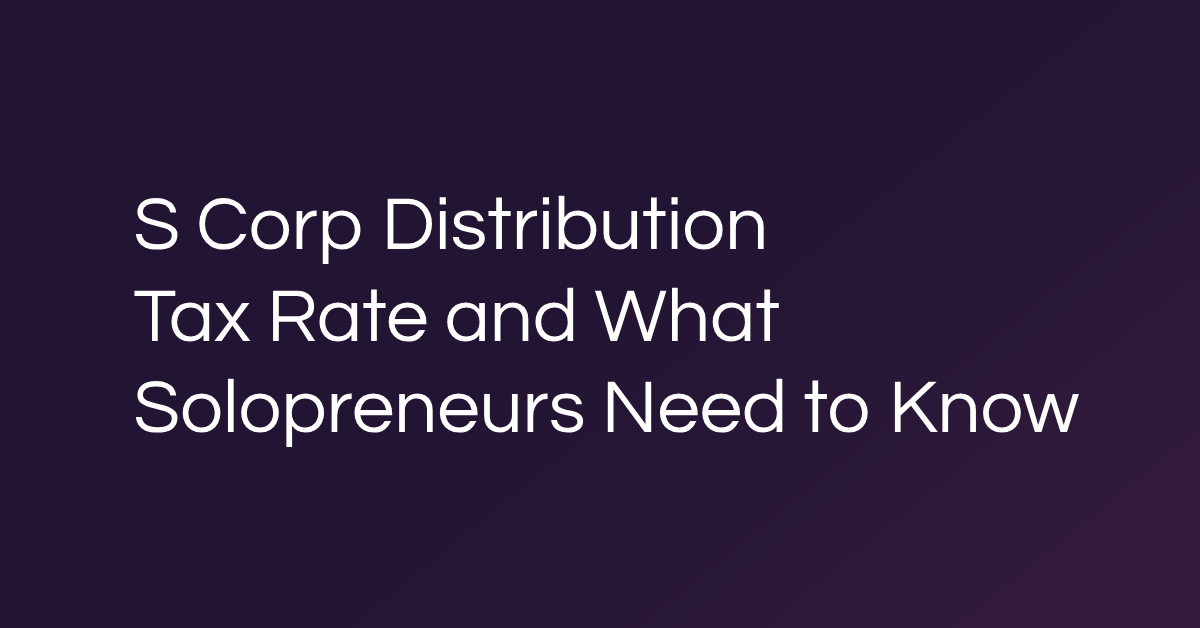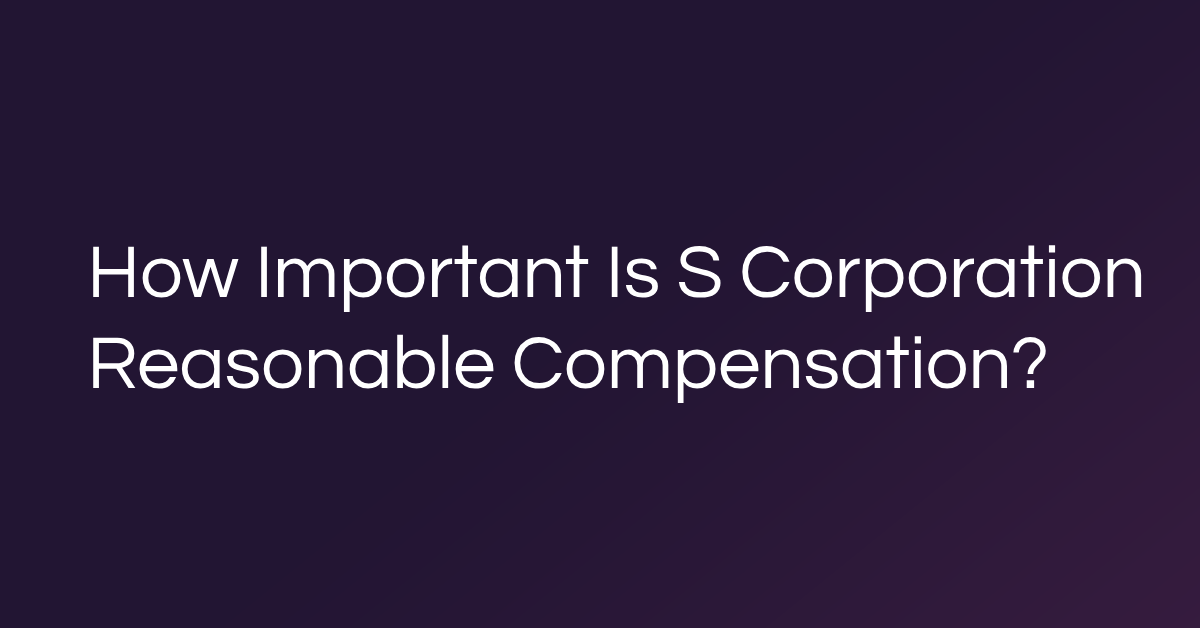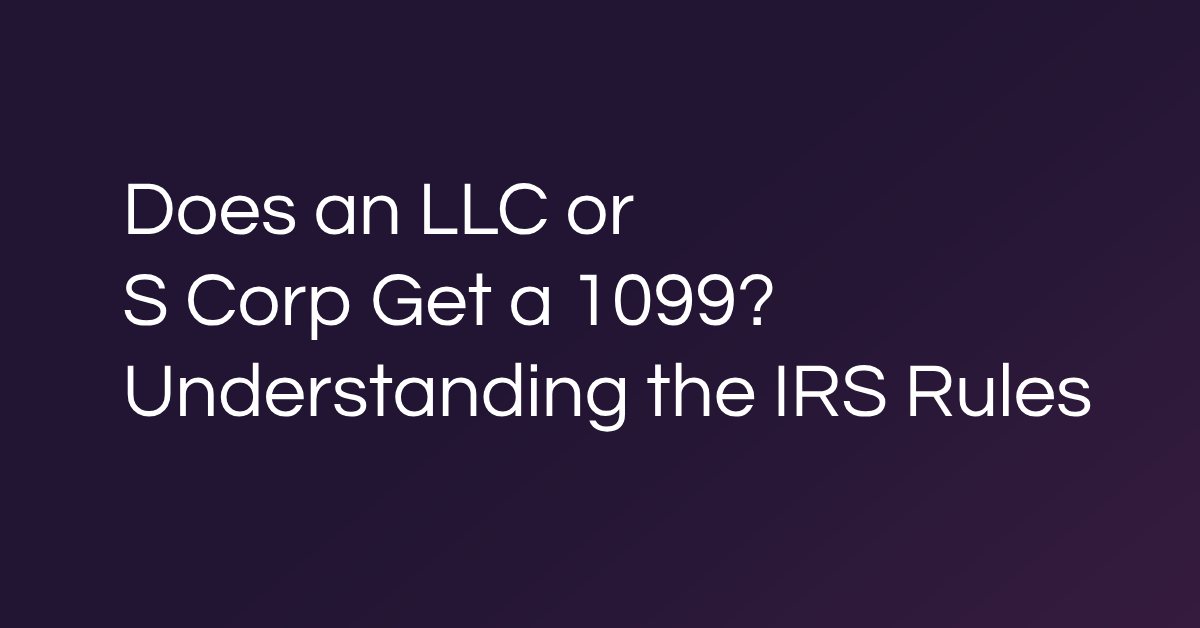If you’re freelancing on the side, testing the waters of full-time independence or starting to scale your business of one, getting a handle on tax deductions is one of the smartest financial moves you can make. A well-organized system for tracking write-offs can turn everyday business expenses into big-time savings. Enter the self-employed tax deductions worksheet.
This self-employed tax deductions worksheet simplifies what to track and why it matters. Whether you’re designing websites, consulting on strategy, or managing social media accounts, this checklist-driven guide helps you feel confident and prepared heading into tax season.
What counts as a deductible expense?
The IRS defines a deductible business expense as something both ordinary and necessary, meaning it’s common in your industry and helpful for running your business. Not everything you spend money on qualifies, even if it feels work-related in the moment.
For instance, purchasing a new phone might seem like a business expense, but if it’s used more for personal reasons than work-related tasks, it might not fully qualify. Properly tracking and categorizing expenses helps ensure accuracy.
Some of the most common deductible categories include:
- Software and digital tools (e.g., Figma, Slack, Adobe Creative Cloud)
- Office supplies and equipment, like laptops, monitors, and printers
- Business meals and travel, when meeting clients or attending conferences
- Marketing and advertising, including website costs and social media ads
- Professional services, such as legal or CPA support
- Business insurance and licensing fees
- Contractor payments if you hire freelance help
- Continuing education or training directly related to your services
Expenses like personal meals, non-branded clothing, or entertainment generally don’t qualify.
When in doubt, track it, but verify its eligibility before you deduct it. This habit not only protects you during tax season but also helps you build better financial systems as your business grows.
The big 5 deductions for solos
If you’re self-employed, these five deductions can dramatically reduce your taxable income. They’re common, substantial, and often overlooked by first-time freelancers.
1. Home office
If you use a space in your home exclusively and regularly for business, you can deduct a portion of your rent or mortgage, utilities, and internet. The simplified method allows a flat $5 per square foot (up to 300 square feet), while the regular method calculates actual expenses based on your office-to-home ratio.
2. Health insurance premiums
Self-employed individuals may deduct the full cost of health, dental, and qualified long-term care insurance for themselves, spouses, and dependents. This deduction only applies if you’re not eligible for an employer-sponsored plan.
Besolo gives you access to corporate-level healthcare benefits, so you’re not stuck navigating insurance alone or overpaying through the marketplace.
3. Mileage or car usage
If you use your vehicle for business purposes, you can deduct either actual expenses or use the standard mileage rate. Keep a detailed log that includes dates, destinations, and the purpose of each trip.
4. Equipment
You can deduct tech tools like laptops, phones, cameras, and tablets used primarily for your business. Depending on the item, you may depreciate the cost over time or use Section 179 to deduct it in full the first year.
5. Business meals/travel
Client meals, travel to conferences, and work-related trips may qualify. Typically, you can deduct 50% of the cost, as long as you document who you met with, when, where, and why.
Retirement: The deduction that future-proofs your business
Retirement savings aren’t just about the future—they can unlock serious tax savings right now. For solopreneurs, Solo 401(k) contributions offer one of the most powerful deductions available.
Solo 401(k) explained
A Solo 401(k) allows you to contribute both as an employer and an employee. For 2025, you can defer up to $23,500 in salary ($30,000 if you’re 50+), plus an employer contribution of up to 25% of compensation/total net income. When combined, the cap can reach $69,000 or $76,500 with catch-up contributions. These plans also allow for Roth and after-tax contributions, giving you flexibility based on your income and goals.
Why high earners should prioritize this
The more you make, the more value you’ll get from maxing out your contributions. Deferring income through a Solo 401(k) reduces your taxable income now while increasing your tax-deferred savings. And because you control the plan, you decide how and when to contribute based on your cash flow.
Besolo integrates Solo 401(k) for seamless contribution tracking
You shouldn’t have to juggle spreadsheets to get retirement deductions right. Besolo tracks your salary, calculates your eligible contribution limits, and automates reporting—all within its self-employment OS. With integrated tax features, including S corp support for employer/employee contribution splits, your 401(k) strategy stays aligned with your overall tax planning.
Use a worksheet to stay on track
Deductions don’t help if you forget to take them. That’s why tracking expenses in real time is one of the smartest habits a solopreneur can build.
Use digital tools to organize your deductions
Whether you use a spreadsheet, accounting software, or mobile app, the key is consistency. Look for tools that categorize expenses automatically, sync with your bank account, and let you upload receipts on the go. For business-of-one professionals, smart admin tools make staying organized simple, even during your busiest season.
Self-employed tax deductions checklist
Track these standard deductions throughout the year to stay organized and maximize your savings:
- Home office expenses
-
- Square footage of the office
- Percentage of the home used exclusively for business
- Rent, mortgage interest, utilities, repairs
- Health insurance premiums
-
- Monthly payments for self-employed health coverage
- Dental, vision, and eligible dependent premiums
- Mileage and car usage
-
- Date, destination, and purpose of each business trip
- Total annual mileage vs. business mileage
- Receipts for parking, tolls, and maintenance (if using the actual expense method)
- Business equipment
-
- Receipts for laptops, phones, monitors, software, etc.
- Purchase dates and item descriptions
- Business meals and travel
-
- Date, location, purpose, and attendees for each business meal
- Travel itineraries, lodging receipts, and transportation costs
- Contractor payments
-
- Name, service provided, and payment amount
- W-9s collected and 1099s issued
- Marketing and subscriptions
-
- Monthly costs for website, hosting, email tools, and design software
- Ad spend and promotional material expenses
- Professional services and fees
-
- CPA or tax preparer invoices
- Legal or business registration fees
- Bank and payment processor charges
Take control of your deductions—and your future
The proper self-employed tax deductions worksheet does more than keep your books clean. It helps you unlock meaningful savings, reduce stress at tax time, and build a more sustainable business-of-one. From tracking home office expenses to optimizing retirement contributions, staying organized gives you clarity, confidence, and control.
However, spreadsheets and checklists are only part of the solution. If you’re planning to scale your freelance income into a full-time operation, it’s time to think like a business owner, not just a contractor. That means automating your deductions, planning your retirement strategy, and getting expert-backed tools to support your next chapter.
Besolo’s Self-Employment OS gives you everything you need to track deductions, contribute to a Solo 401(k), and manage your back office with ease. No guesswork. No stress. Just innovative systems that work behind the scenes while you focus on growing.

